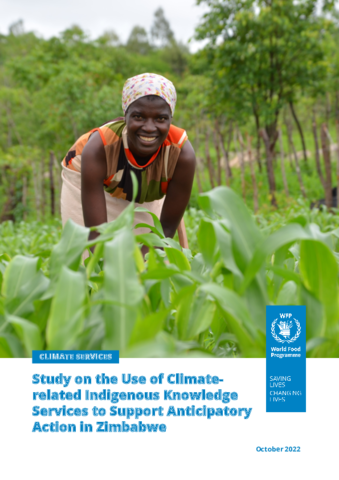
The World Food Programme (WFP) is supporting the
Government of Zimbabwe to deliver climate information to
the local population through Anticipatory Action
(AA).
To strengthen the AA programme in
Zimbabwe, it was found necessary to consider the
integration of Indigenous Knowledge Systems in the AA
decision-making processes. A fuller understanding of the
current state of Indigenous Climate Services (ICS) in
weather and seasonal climate forecasting amongst some of
the targeted communities seemed essential before such an
integration could be done. To address this need, this
study was conducted in four districts where anticipatory
action was to be implemented, namely: Mbire, Mudzi,
Binga and Matobo in Zimbabwe.



